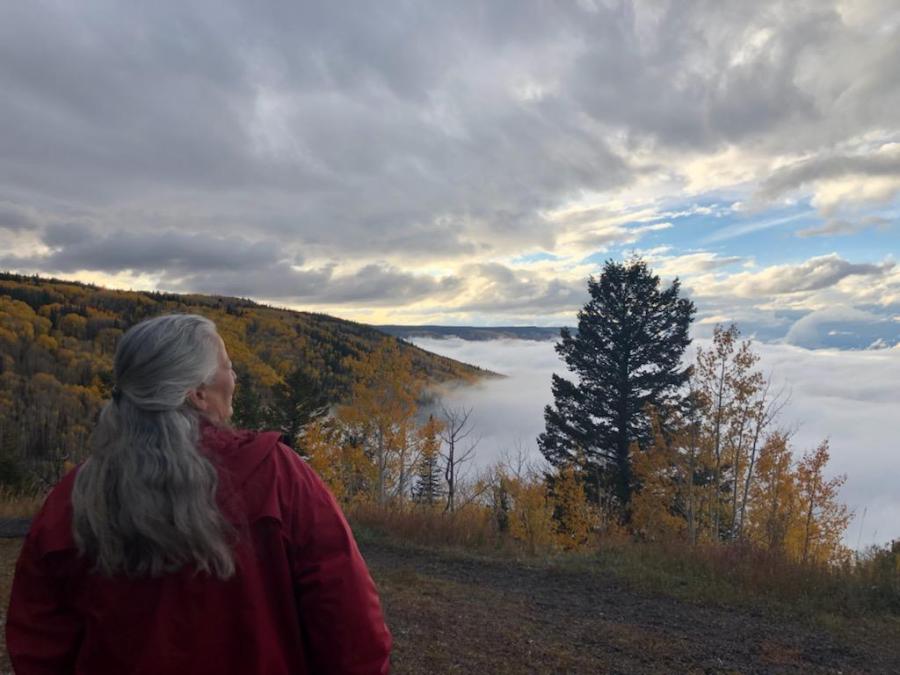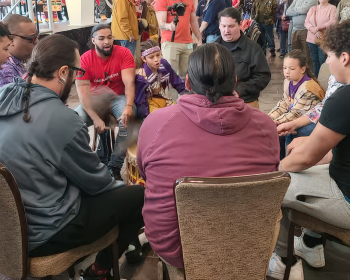The enactment of the Indian Gaming Regulatory Act (IGRA) of 1988, which was sponsored by Senator Inouye of Hawaii and Senator Evans of Washington, has spurred the growth of High Stakes Gaming on Indian Reservations. Tribally run gaming represents about 3% of all national gaming. With $4 billion in gross income, there are 59 tribes in 16 states with High Stakes Gaming. Since the amendment was enacted the 103rd Congress is trying to amend the IGRA with Bill S 2230, which was presented to Congress on June 23, 1994, This has created an interesting tribal and federal judicial question over tribal rights of self regulation and sovereignty, and state powers over tribes.
In February 1993, the Governor Association, in a 49 to 1 vote, passed a resolution which sought to restrict Indian Gaming on tribal lands. Then in May 1993 Rep. Robert Torricelli, D-NJ, sponsored the House version of an Troccieclli would increase state regulation of Indian Gaming, prohibit acquisition of non-reservation lands for gambling purposes, allows states to reopen existing agreements, and authorize federal authorities to conduct background checks on individuals involved in tribal operations. The issue of Indian gaming at the beginning of the 103rd Congress became more of a special interest issue then a constitutional question. Marge Anderson, Administrator of Mille Lacs Band of Chippewa in Minnesota, who is often cited as an early success story by Indian Gaming supporters, said "It's Las Vegas Atlantic City that they're trying to protect, and it is an outrage that they're cloaking their own self-interest in the guise of being concerned about regulatory issues. This is about greed-pure, unadulterated greed-and one more thing that's even more intolerable-racism."
With the threat of an explosion of lawsuits across the country between tribes and states in May 1993, Sen, Inouye, an outspoken advocate of tribal sovereignty, met with tribal leaders, governors, senators and state attorney generals to slow down the escalating political battle. Through a series of negotiations over the last year, Sen, Inouye said, "A meaningful, straightforward negotiations process is the best way to approach this battle of law, politics and money. There is need for dialogue." On June 23, 1994, after a year of negotiations, Sen, Inouye and Sen. John McCain, R-AZ, introduced Bill S 2230.
This bill would expand the federal government's regulatory role by adding two more seats to the National Indian Gaming Commission, with these two seats controlled by state-appointed staff. Bill S 2230 would also expand the role of the federal government by taking away the state's arguments by taking away the states' arguments for 10th and 11th amendment rights. According to this new proposal, if a state choose to "opt out" of negotiations with a tribe, then the compact would be conducted between tribes and the Interior Department. The states which choose to negotiate, automatically waive their 11th amendment right, which prohibits states from being used without their permission. Bill S 2230 will also create an agency which will be responsible for background checks of any casino employees.
In July 7-8, 1994, the National Gaming Association and National Congress of American Indian task force gathered with more than 250 tribal delegates in Tuksa, Oklahoma, on July 7-8 to request Senators Unoye and McCain to withdraw Senate Bill S 2230. Many of the delegates at this meeting expressed their disbelief with the amendments in this Bill. Stanley Crooks, Vice President of the Minnesota Indian Gaming Association, pointed out that, "The proposal changes alter the National Indian Gaming majority to a minority and tribes, though not opposed to Minimum Federal Standards, want to administer certain standards themselves and that numerous other amendment interfere with the sovereign status of tribes." Stanley also expressed disappointment in the Clinton Administration,"[he] questioned why the draft bill did not have input from Indian tribes prior to its introduction in view of a recent statement by President Clinton reaffirming tribal Sovereignty and government to government relations."
As tribal leaders blast Bill S 2230 as too restrictive, there is some light at the end of the tunnel, there is some light at the end of the tunnel. Rep. Esteban Torres, D-CA, offered a competing bill on July 21, 1994, which has been endorsed by 100 tribes participating in the joint task force of the National Congress of American Indians and National Indian Gaming Association. This bill would preserve tribal sovereignty on gaming established by the 1987 Cazbazon decision, remove states from the negotiation process and restore the Department of Interior for compact negotiations, eliminate the veto power of governors used to refuse compact negotiations, and "grandfather" existing Indian Gaming activities.
Recently, legislation on Bill S 2230 has been introduced in Congress, but it has not progressed beyond hearings and isn't likely to pass this year. The threat to Indian Country is just starting and has a long road left in front of it. Governor Joan Finney D-KS, who supports the original IGRA and Indian Gaming, said, "To lose this act and its opportunities turns federal policy into retreat on that long trial that broke down tribal relationships and governments, assimilated Indian people and sold landholdings and whole heritages."
Article copyright Cultural Survival, Inc.



